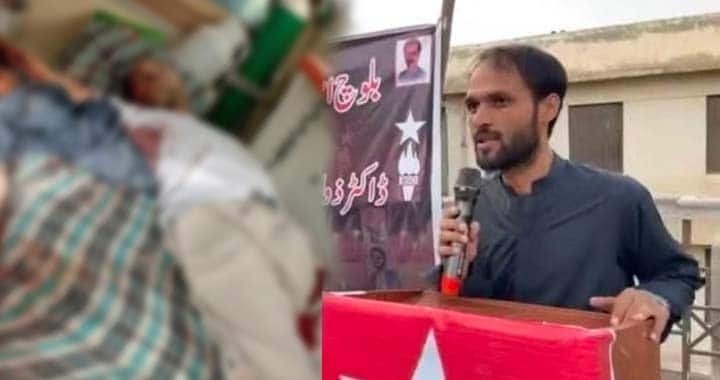In a decisive move that has rattled anti-state elements and their foreign backers, Pakistan’s intelligence agencies have delivered a severe blow to the Balochistan Liberation Army (BLA) by eliminating its key commander, Zubair Baloch, in a high-stakes operation in Dalbandin, a strike no one across the border saw coming.
Sitting confidently in a hidden safehouse, Zubair Baloch had long believed he was beyond the state’s reach. Known for wearing the mask of a student activist while secretly directing subversive operations, he facilitated a string of deadly attacks in Balochistan, including the targeted killing of two Pakistan Air Force personnel, all while parading through cities under the guise of a university student.
But the calm wouldn’t last forever.
A Complex Web Unravelled
Officials close to the operation revealed that Zubair’s hideout was detected through a meticulous intelligence process involving field surveillance, analysis of call data records, satellite signal interception, and banking transactions. A white double-cabin vehicle, rented under a fake identity and regularly seen in Dalbandin, eventually led to the breakthrough. A transmitter placed beneath its mudguard had been emitting signals to foreign numbers believed to be outside Afghanistan, a signal that ultimately gave away Zubair’s location.
Once the coordinates were confirmed, the Special Search Unit silently surrounded the premises. A brief exchange of gunfire ensued when Zubair attempted to flee, in line with BLA’s traditional resistance to arrest, but he was ultimately eliminated after a short firefight lasting under an hour.
Security forces recovered two M3 carbines, a remote control for a Starling surveillance drone, and a hard drive containing 47GB of sensitive data. The data included detailed maps of critical China-Pakistan Economic Corridor (CPEC) infrastructure, foreign funding records, and documents related to BLA’s new recruitment plans.
BLA’s Intelligence Network Crippled
Investigators confirmed that Zubair had previously served as the joint secretary of the Baloch Students Organization (BSO), using the platform to build a covert intelligence wing within educational institutions. He regularly photographed student seminars and transmitted images via a smuggled satellite link to a technical cell operated by India’s Research and Analysis Wing (RAW), according to the sources.
Following Zubair’s death, BLA’s intelligence apparatus appears to be in disarray. Three known safe houses in Manjgur, Noshki, and Kharan have reportedly been abandoned, and several facilitators are believed to be attempting to flee across the border. Two hidden signal repeaters installed in Dalbandin were also disabled during the operation, effectively creating a communication blackout within the BLA’s wireless network.
Recruitment Freeze, Shift to Mountains Ordered
Intelligence sources further claim that a confidential directive circulated within BLA channels shortly after Zubair’s death ordered an immediate freeze on new recruitments and instructed all field commanders to vacate urban areas and retreat to mountainous regions. Officials say this is a clear indication of panic and strategic collapse within the militant group.
The operation, conducted jointly by the Pakistan Army, Frontier Corps (FC), and the Counter-Terrorism Department (CTD), is being hailed as a landmark counter-terrorism success. “This mission has not only shattered BLA’s spine but pulled the ground out from under their feet,” one senior security source said.
The Tide Turns in Balochistan
As the dust settles, the ground reality across Balochistan is visibly changing. With threats receding, development projects, especially under the CPEC framework, are gaining renewed momentum. Educational institutions are being reclaimed from politicised disruption. The so-called student commanders who once moved in shadows are either neutralised, on the run, or exposed.
This operation has demonstrated a new resolve, that those exploiting nationalist slogans to serve foreign agendas will face not only exposure but elimination.
“When the state decides to act, there are no safe houses left,” said one senior security official. “The message is clear: Zubair was not a warning. He was the beginning.”





